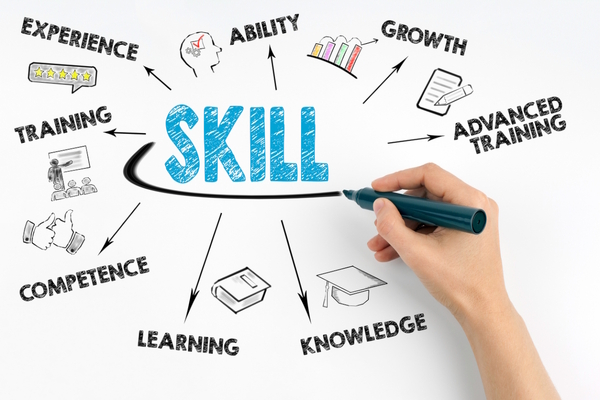Protecting the talent pipeline from AI

Joris Van Der Gucht at Ravical explains how AI can enhance junior talent without replacing them
For generations, professional services have relied on expertise as their currency. That currency is now being challenged. Until recently, expertise was defined by access to specialist knowledge that clients did not possess or could not easily find elsewhere. Accountants, lawyers, consultants, and advisers built their reputation on uncovering insights and providing answers that were out of reach for most.
Now, AI is rewriting those rules, but it is also creating powerful new ways for expertise to be developed and shared within the firm.
Large language models such as GPT-5 now hold much of the information that once made professionals indispensable. A growing number of clients are already using these tools themselves to answer complex questions with surprising speed and accuracy. They are beginning to expect the same clarity and responsiveness from their advisers. More recently, agentic AI has taken this further, with systems that can not only provide answers but also reason, take action, and complete tasks from start to finish.
This has major implications not only for client delivery but for how professionals, especially juniors, learn and grow within firms. It also reshapes what we mean by expertise itself. If AI can surface knowledge instantly and help juniors develop faster, then the role of the expert shifts from being the sole keeper of information to being the guide who provides context, judgment, and direction where it matters most.
Expertise beyond knowledge
The answer lies not in abandoning expertise, but in redefining it - knowledge has always been necessary, but it is no longer enough. What differentiates the professional now is the ability to apply judgment, to provide context, and to navigate complex decisions where the stakes are high.
AI is far from making the professionals redundant, but it can enable them to spend more of their time on this higher-order work. By taking on the repetitive, administrative, and routine elements of professional services, AI creates space for human advisers to focus on strategy, trust, and relationships - things that actually move the needle.
At the same time, AI can support the development of junior staff by surfacing best practices, answering their day-to-day questions instantly, and giving them access to the collective knowledge of the firm. In effect, AI becomes both assistant and coach.
AI as a catalyst for training talent
One of the greatest pressures on firms today is the squeeze on junior professionals. These are the individuals who have traditionally shouldered repetitive work, from reconciliations to document reviews. Recent headlines have shown that AI is eliminating junior roles, and that has spread an understandable concern for the future of professional job roles.
But the reality is far more nuanced - rather than replacing junior staff, AI agents can accelerate their development. By handling routine tasks at scale, agents free early-career professionals to take on more meaningful work sooner.
At the same time, AI can act as a coach, collating the knowledge of senior experts and making it instantly available. This means juniors no longer wait weeks or months to absorb expertise by osmosis; they can learn through guided answers, examples, and context provided by AI, while still benefiting from human mentorship. This accelerates their development and keeps them engaged, and also ensures that firms do not hollow out the very pipeline of talent they need for the future.
This is equally powerful for experienced professionals - their deep knowledge and insight can be embedded into AI systems, creating a living resource that supports the entire team. Rather than expertise being locked away in the heads of partners or senior managers, it becomes accessible on demand, ensuring continuity, faster learning, and stronger performance across the firm.
Trust and competitiveness in the AI era
Trust is the foundation of professional services, and without it, even the best technical advice has very little value. That is why the role of a human advisor is crucial here - while AI can bring speed, it is the responsibility of the human advisor to maintain transparency with their clients about the use of technology, comply with all relevant regulations, and ensure human oversight. This approach ensures a vital balance, enabling professionals to deliver more proactive services faster and with more clarity.
Professionals should remain in control of the output using the right governance frameworks. Part of this control includes ensuring that AI coaching tools for juniors are accurate, explainable, and subject to senior oversight. On the flipside, all clients want now is reassurance that AI is being used to enhance their service, not to cut corners.
When it is used thoughtfully, AI can actually help build trust. Clients notice when a firm delivers advice that is clearer, faster, and more proactive, and they see it as a sign that the firm is investing in innovation to serve them better. In a competitive market, those signals can make all the difference.
Reshaping roles for the future
Adopting AI is not only about efficiency; it is also about rethinking how roles are designed. The real danger is that firms treat AI only as a way to cut costs, swapping people for machines. It may save money in the short term, but it risks weakening the pipeline of talent and leaving staff unprepared for the work that lies ahead. A better approach is to rethink roles so that professionals and AI can support one another.
For juniors, this means developing faster and smarter, with AI giving them guided access to senior expertise and freeing them from routine tasks. For seniors, this means scaling their impact, with AI capturing their knowledge and making it usable across the firm. Professionals can concentrate on interpretation, relationships, and judgment while their AI agents can support them by handling workflows, ensuring completeness, and surfacing insights from data. This shift allows firms to serve more clients, more effectively, without losing the human element that underpins trust.
Signals from early adopters
This change is coming sooner than we think it is. According to EY, nearly half of technology companies are already adopting or fully deploying AI agents. At Google Cloud Summit London in July, senior leaders described agents as moving from pilots to core infrastructure, with early adopters reporting significant efficiency gains.
Professional services may not be leading this wave, but they will not be insulated from it. The same questions facing technology firms will soon confront accountants, lawyers, and consultants. Firms that act early will be better positioned to turn AI into a competitive advantage, and those who delay may find the market shifting beneath their feet.
Redefining value in the post-knowledge economy
The profession currently stands at a crossroad; one path treats AI as a threat to be minimised, leading to defensive cost-cutting and reduced opportunities for staff. The other treats AI as an enabler, reshaping roles and unlocking new ways to deliver value.
The firms that take the second path will remain trusted, competitive, and relevant. They will not define their worth solely by what they know, but by how they help clients act on that knowledge with confidence, and how they use AI to accelerate the growth of their people as well as the service they deliver.
In the post-knowledge economy, the real value of the expert lies in judgment, trust, and the ability to collaborate with intelligent systems to achieve better outcomes. That is the opportunity facing professional services today - the question is, who will seize it?
Joris Van Der Gucht is CEO and Founder at Ravical
Main image courtesy of iStockPhoto.com and Marco VDM

Business Reporter Team
You may also like
Most Viewed
Winston House, 3rd Floor, Units 306-309, 2-4 Dollis Park, London, N3 1HF
23-29 Hendon Lane, London, N3 1RT
020 8349 4363
© 2025, Lyonsdown Limited. Business Reporter® is a registered trademark of Lyonsdown Ltd. VAT registration number: 830519543





